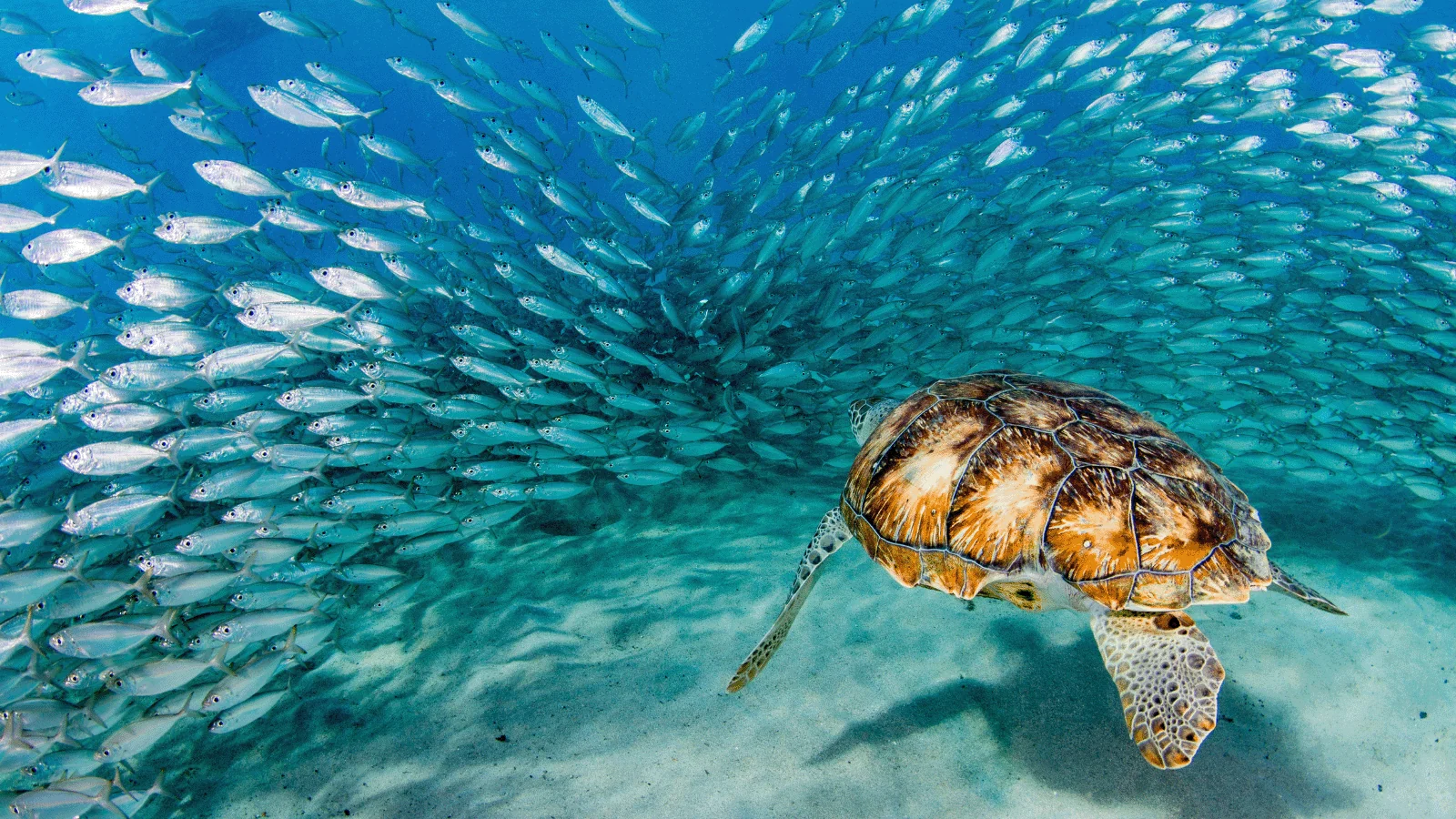
Lungs of the Earth
Take a deep breath. Does the air smell salty? Probably not, but the ocean plays one of the most important roles in producing the air we breathe. It’s fitting that the United Nations refers to our ocean as the “lungs of the Earth.”
Most of the planet’s oxygen, as much as 80%, comes from the ocean. Marine organisms such as seaweed, phytoplankton and some bacteria photosynthesize — meaning that just like plants, they consume carbon dioxide, water, and sunlight, and produce oxygen. The oxygen they produce benefits all living creatures, including you and many of the aquatic animals you can visit at the Indianapolis Zoo, like seals, sharks and seahorses.
The need to breathe is one of the many reasons why conservationists are working to protect the ocean we all share. Other conservation issues include loss of biodiversity, coral bleaching, overfishing, and climate change. Addressing concerns while also celebrating our blue planet is what World Ocean Day is all about. This year’s theme is “Life and Livelihoods.” Oceanographer Dr. Sylvia Earle, a 2021 Indianapolis Prize finalist, narrates a video explaining how we are all connected by the ocean.
OUR SHARED OCEAN
The ocean gives us so much, but its generosity has limits. “Mismanaged fisheries represent the greatest threat to marine biodiversity, but encouragingly, it is very possible to manage fisheries for both conservation and human need,” said champion of the ocean and 2021 Indianapolis Prize Winner Dr. Amanda Vincent.
The United States leads the world in creating marine sustainability. There are 47 fish stocks in U.S. waters that have been rebuilt through active management and catch limits. Additionally, the U.S. is a stronghold for species like the great white shark and smalltooth sawfish, thanks in part to the Endangered Species Act.
Dr. Vincent said ocean lovers have the power to create change through voting and purchasing. “This is why we need everybody to ask their policymakers to prioritize the ocean.” Your actions can make a big difference. Ask politicians about their ocean policy and ask grocers and restaurants about their seafood sources.
CELEBRATE
To celebrate World Ocean Day, visit the official website. It has a list of virtual events to explore, social media graphics to download, and even an Octonauts coloring page for the kids.
Finally, remember to thank the ocean for every other breath you take.
FUN OCEAN FACTS
- The ocean covers more than 70% of the planet.
- It’s home to most of Earth’s biodiversity.
- More than 3 billion people depend on seafood as a protein source.
- By 2030, an estimated 40 million people are expected to work in ocean-based industries.
Published June 8, 2021

